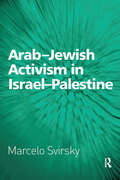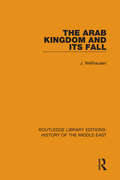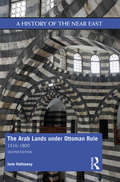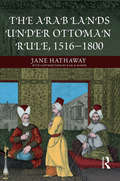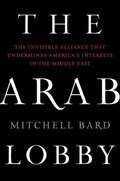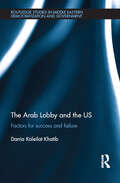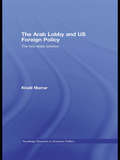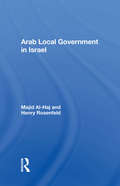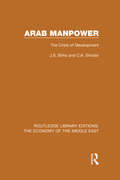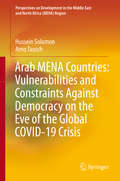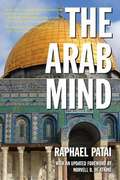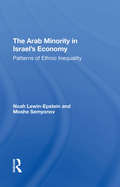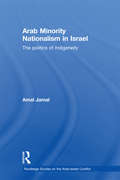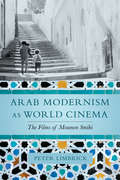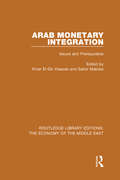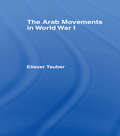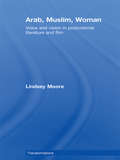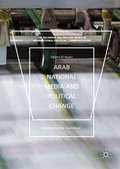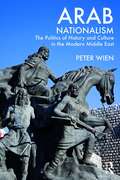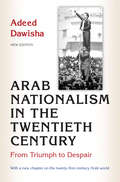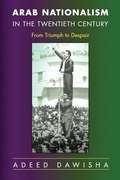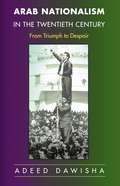- Table View
- List View
Arab Jazz
by Karim Miské Sam GordonKosher sushi, kebab stands, a secondhand bookstore, and a bar: the 19th arrondissement in Paris has all the trappings of a cosmopolitan melting pot--a place where multiethnic citizens live, love, and worship alongside one another. But dark passions are brewing beneath the seemingly idyllic vision of peacefully coexisting ethnicities. Ahmed Taroudant is an archetypal French Arab-non-observant, unable to reconcile his conflicting identities, and troubled by the past. A crime fiction connoisseur, Ahmed is engrossed in his latest book when he finds blood dripping from his upstairs neighbor's apartment. There, Laura Vignole is found brutally murdered, with a joint of pork placed near her body, prompting the obvious conclusion that the killer had religious motives. As the neighborhood erupts into speculation and gossip, Ahmed finds himself first among many suspects. Detectives Rachel Kupferstein and Jean Hamelot attempt to untangle the complex web of events leading up to Laura's death, but truth is hard to come by, with each inhabitant--an Armenian anarchist, a Turkish kebab-shop owner, and a Hasidic Rastafarian--reluctant to reveal anything. Determined to clear his name, Ahmed joins the detectives as they investigate the connection between a disbanded hip-hop group and the fiery extremist preachers clamoring for attention in the streets. Meanwhile, an ecstasy variant called Godzwill is taking the district by storm. In his debut novel, Karim Miské demonstrates a masterful control of setting, as he moves effortlessly between the sensual streets of Paris and the synagogues of New York to reveal the truth behind a horrifying crime.
Arab-Jewish Activism in Israel-Palestine
by Marcelo SvirskyApplying the insights of Deleuze and Guattari's works to Israel-Palestine, Arab-Jewish Activism in Israel-Palestine sets out to re-conceptualise the relationship between resistance and power in ethnically segregated spaces in general, and the Israeli-Palestine context in particular. Combining many years of ethnographic study and political and social activism with a solid, theoretical, conceptual framework, Marcelo Svirsky convincingly argues that successful efforts to decolonise the region depend on taking the struggle beyond self-determination and making it collaborative. Decolonisation depends on political and cultural changes that elaborate on the historical partition of social life in the region that have been an issue since the early twentieth century. This elaboration means producing a civil struggle aimed at the destabilisation of the Zionist supremacy and resulting in a democratic, political community from the Mediterranean Sea to the Jordan River. Simply not just another book on Israel and Palestine, Arab-Jewish Activism in Israel-Palestine provides refreshingly new empirical evidence and theoretical analysis on the connection between resistance, intercultural alliances, civil society, and the potential for actualising shared sociabilities in a conflict-ridden society. An indispensable read to all scholars wishing to gain original insights into the transversal connections which transcend ethnicity.
The Arab Kingdom and its Fall (Routledge Library Editions: History of the Middle East #2)
by J. WellhausenThe political community of Islam grew out of the religious community. This book, first published in 1927, is the key work in understanding the early development of Islam and the history of the Arab peoples.
The Arab Lands under Ottoman Rule: 1516–1800 (A History of the Near East)
by Jane HathawayThe Arab Lands under Ottoman Rule assesses the effects of Ottoman rule on the Arab Lands of Egypt, Greater Syria, Iraq, and Yemen between 1516 and 1800. Drawing attention to the important history of these regions, the book challenges outmoded perceptions of this period as a demoralizing prelude to the rise of Arab nationalism and Arab nation-states in the nineteenth and twentieth centuries. As well as exploring political events and developments, it delves into the extensive social, cultural, and economic changes that helped to shape the foundations of today's modern Middle and Near East. In doing so, it provides a detailed view of society, incorporating all socio-economic classes, as well as women, religious minorities, and slaves. This second edition has been significantly revised and updated and reflects the developments in research and scholarship since the publication of the first edition. Engaging with a wide range of primary sources and enhanced by a variety of maps and images to illustrate the text, The Arab Lands under Ottoman Rule is a unique and essential resource for students of early modern Ottoman history and the early modern Middle East.
The Arab Lands under Ottoman Rule: 1516-1800
by Jane Hathaway Karl BarbirIn this seminal study, Jane Hathaway presents a wide-ranging reassessment of the effects of Ottoman rule on the Arab Lands of Egypt, Greater Syria, Iraq and Yemen - the first of its kind in over forty years. Challenging outmoded perceptions of this period as a demoralizing prelude to the rise of Arab nationalism and Arab nation-states in the nineteenth and twentieth centuries, Hathaway depicts an era of immense social, cultural, economic and political change which helped to shape the foundations of today's modern Middle and Near East. Taking full advantage of a wide range of Arabic and Ottoman primary sources, she examines the changing fortunes of not only the political elite but also the broader population of merchants, shopkeepers, peasants, tribal populations, religious scholars, women, and ethnic and religious minorities who inhabited this diverse and volatile region. With masterly concision and clarity, Hathaway guides the reader through all the key current approaches to and debates surrounding Arab society during this period. This is far more than just another political history; it is a global study which offers an entirely new perspective on the era and region as a whole.
The Arab Lobby: The Invisible Alliance That Undermines America's Interests in the Middle East
by Mitchell BardFrom “a research scholar with impeccable academic credentials . . . A complete, patient catalogue of the financial details of Saudi influence peddling” (National Review).While critics claim that a nefarious Israel Lobby dictates U.S. policy in the Middle East, the Arab Lobby in this country is older, richer, and more powerful than the American Israel Public Affairs Committee (AIPAC). The Arab Lobby is the first book in more than 25 years to investigate the scope and activities of this diffuse yet powerful network. Author Mitchell Bard courageously explores the invisible alliance that threatens Israel and undermines America’s interests in the Middle East.“Illuminates the dark side of the massive and largely undemocratic Arab lobbying efforts to influence American policy with regard to the Middle East . . . A must-read.” —Alan M. Dershowitz “In a pointed response to John Mearsheimer and Stephen Walt’s equally scathing The Israel Lobby and U.S. Foreign Policy (2007), Bard goes full throttle in pursuit of what he sees as a more insidious, if less vociferous behind-the-scenes lobby by the masters of Gulf oil and foes of Israel.” —Kirkus Reviews“A seriously and timely look at a powerful and remarkably under-studied influence on U.S. foreign policy.” —Tablet“Extraordinarily well-researched . . . Bard has performed a valuable service with his book, which will be eye-opening to many, even among friends of Israel, who are not aware just how deep and long-lived is the historical animus not only to the actions of the Jewish state itself but also to the very idea of a Jewish state at all.” —Commentary
The Arab Lobby and the US: Factors for Success and Failure (Routledge Studies in Middle Eastern Democratization and Government)
by Dania Koleilat KhatibAll the components needed to construct an Arab lobby exist; the significant Arab Diaspora in the US, the historic strategic relationship between Arab Gulf States and the US, and the Gulf’s economic wealth. However, lobbying is alien to Arab culture and largely absent from its political landscape. To achieve a fair and objective assessment of Arab Gulf lobbying it is necessary to have a thorough understanding of the prevailing Arab Gulf political culture that shapes it. The Arab Lobby and the US provides a timely contribution to this understanding. Studying attempts by Arab Gulf states to effectively lobby the US government, it explores aspects of their lobbying behaviour in order to identify the factors that lead to success and those that lead to failure from their lobbying endeavours. In this respect, the research utilizes two case studies: one in which Arab Gulf state lobbying was successful, and another in which lobbying failed. In tandem with an analysis of the strategies—or lack of them—behind Arab Gulf states’ lobbying, the research examines additional relevant factors such as the organization and activism of the US Arab American community, the strategic value of the Arab Gulf to the US, and the negative image of Arabs in America. The book considers the obstacles to the establishment of an effective Arab Gulf lobby in the US in order to reach an informed conclusion that evaluates the prospects of an effective Arab Gulf lobby. As one of the few academic research works on the Arab Lobby, this work will be of value to scholars and policy makers interested in US domestic politics and Arab American activism, as well as students of Middle Eastern Studies, Arab Gulf studies and communication and public relations, among others.
The Arab Lobby and US Foreign Policy: The Two-State Solution (Routledge Research in American Politics and Governance #Vol. 2)
by Khalil MarrarThe US foreign policy stance on Israel-Palestine has shifted considerably in recent years, from a position of "Israel only" to one which embraces both Israel and Palestine in a call for peace. This volume assesses why the US stance has evolved in the way that it has, concluding that while international factors cannot be overlooked, developments within the United States itself are also crucial. After years of vacillating on Palestinian national aspirations, the majority of Americans, the author notes, have come to favor the establishment of an independent Palestinian state on the West Bank and the Gaza strip. Considering what accounts for changes in US policy on Israel-Palestine, this volume: delivers a thorough assessment of the role of international and domestic factors in shaping US policy in this area considers how US policy has evolved from the Camp David negotiations of the 1970s up to the occupation of Iraq in the mid 2000s explores the significance of American public opinion and the pro-Israel and Arab lobbies in the evolution of US policy The Arab Lobby and US Foreign Policy will be of interest to students and scholars of Foreign Policy and Political Science, Current Affairs and American Studies. Khalil M. Marrar is Professor at DePaul University, USA. He has served in editorial positions at the Arab Studies Quarterly and the Association of Arab-American University Graduates.
Arab Local Government In Israel
by Majid Al-hajA study in the project The Status and Condition of the Arabs in Israel under the direction of Professor Henry Rosenfeld. In this book the authors present a historical analysis of local authorities in Arab communities prior to and since the establishment of the state of Israel. They discuss the workings of Arab local councils, municipalities, and national political groupings as well as the circumstances of internal conflicts in Arab settlements. They also present comparative data on budgets in Jewish and Arab communities.
Arab Manpower: The Crisis of Development (Routledge Library Editions: The Economy Of The Middle East Ser.)
by J.S. Birks C.A. SinclairThe Arab world increasingly falls into two divisions, the capital-poor and the capital-rich countries (where capital means, in essence, oil). In the capital-rich countries shortage of labour is the chief constraint on growth. In the capital-poor countries analysis of the labour market is equally central, as shortage of labour compounds the already existing problem of shortage of capital. This book surveys the labour markets of the Arab world state by state, evaluating them by demand and supply analysis, and analysing the different elements in trends of employment. It forecasts the areas of stress in the next decade and suggests ways of minimising them. The book, based on much previously unpublished information and on extensive on-the-spot research in the respective Arab countries, sets out the economic and social conditions which underly the impending crisis of development in the Arab region.First published in 1980.
Arab Masculinities: Anthropological Reconceptions in Precarious Times (Public Cultures of the Middle East and North Africa)
by Bård Helge Kårtveit Jamie Furniss Hsain Ilahiane Alice Elliot Anne Hovgaard Jørgensen Gustavo Barbosa Sabiha Allouche Lisa L. Wynn Laura FerreroArab Masculinities provides a groundbreaking analysis of Arab men's lives in the precarious aftermath of the 2011 Arab uprisings. It challenges received wisdoms and entrenched stereotypes about Arab men, offering new understandings of rujula, or masculinity, across the Middle East and North Africa.The 10 individual chapters of the book foreground the voices and stories of Arab men as they face economic precarity, forced displacement, and new challenges to marriage and family life. Rich in ethnographic details, they illuminate how men develop alternative strategies of affective labor, how they attempt to care for themselves and their families within their local moral worlds, and what it means to be a good son, husband, father, and community member. Arab Masculinities sheds light on the most private spaces of Arab men's lives—offering stories that rarely enter the public realm. It is a pioneering volume that reflects the urgent need for new anthropological scholarship on men and masculinities in a changing Middle East.
An Arab Melancholia
by Abdellah Taïa Frank StockAn autobiographical portrait of a gay Arab man, living between cultures, seeking an identity through love and writing. Near Rabat. The mid 1980s. A lower-class teenager is running until he's out of breath. He's running after his dream, his dream to become a movie director. He's running after the Egyptian movie star, Souad Hosni, who's out there somewhere, miles away from this neighborhood--which is a place the teenager both loves and hates, the home at which he is not at home, an environment that will only allow him his identity through the cultural lens of shame and silence. Running is the only way he can stand up to the violence that is his Morocco. Irresistibly charming, angry, and wry, this autobiographical novel traces the emergence of Abdellah Taia's identity as an openly gay Arab man living between cultures. The book spans twenty years, moving from Sale to Paris, to Cairo. Part incantation, part polemic, and part love letter, this extraordinary novel creates a new world where the self is effaced by desire and love, and writing is always an act of discovery.
Arab MENA Countries: Vulnerabilities and Constraints Against Democracy on the Eve of the Global COVID-19 Crisis (Perspectives on Development in the Middle East and North Africa (MENA) Region)
by Hussein Solomon Arno TauschThis book offers readers critical insights into a region in crisis and explores different facets of the crisis from governance to gender to the politics of identity, the challenge of the environment and the enduring impact of demographic variables and technological change. Whilst exploring the nature of the crises, the book also explores how policy-makers have responded to these and what other alternatives there are in overcoming challenges posed. Whilst the focus is on the Middle East North Africa region as a whole, the authors are well aware of the unique characteristics of individual countries. Hence the book examines regional trends whilst also being conscious of the national specificities of each country. In combining the general with the particular, the book approaches its subject matter from both a quantitative and a qualitative perspective allowing one to understand regional trends and country specific peculiarities.
The Arab Mind (Revised Edition )
by Raphael PataiThe classic study of Arab culture and society that help us better understand a complex, proud and ancient culture. This book discusses the upbringing of a typical Arab boy or girl, the intense concern with honor and courage, the Arabs' tendency toward extremes of behavior, and their ambivalent attitudes toward the West. Chapters are devoted to the influence of Islam, sexual mores, Arab language and Arab art, Bedouin values, Arab nationalism, and the pervasive influence of Westernization. With a new foreword by Norvell B. DeAtkine, Director of Middle East Studies at the JFK Special Warfare Center and School, Fort Bragg, N.C., this book unravels the complexities of Arab traditions and provides authentic revelations of Arab mind and character.
The Arab Minority In Israel's Economy: Patterns Of Ethnic Inequality
by Moshe Semyonov Noah Lewin-epsteinThe Arab Minority in Israel's Economy considers the Arab population as an integral, albeit disadvantaged, part of Israeli society. Using data from a thirty-year period, the book looks at Arab participation in the economy, especially in the labor market, showing how significant socioeconomic inequality persists despite a fundamental tenet of Israel's declaration of independence asserting equality of political and social rights of all its citizens. Taking an ethnic competition perspective, the authors explore the extent of inequality, uncovering the institutional and social processes that influence it. They examine the role of local labor markets and individual human resources, giving special attention to the growing labor force participation of Arab women. They also consider the gains of the majority Jewish population that have resulted from competition and economic discrimination against Arabs. Although the Arab community in Israel has been studied in the past, this book is unique in its detailed analysis of employment activity within and outside of the Arab sector and in examining both Arabs and Jews within the stratification system. The book fosters deeper understanding of Israeli society and of multi-ethnic societies more generally.
Arab Minority Nationalism in Israel: The Politics of Indigeneity (Routledge Studies in Middle Eastern Politics)
by Amal JamalNational minorities and their behaviour have become a central topic in comparative politics in the last few decades. Using the relationship between the state of Israel and the Arab national minority as a case study, this book provides a thorough examination of minority nationalism and state-minority relations in Israel. Placing the case of the Arab national minority in Israel within a comparative framework, the author analyses major debates taking place in the field of collective action, social movements, civil society and indigenous rights. He demonstrates the impact of the state regime on the political behaviours of the minorities, and sheds light on the similarities and differences between various types of minority nationalisms and the nature of the relationship such minorities could have with their states. Drawing empirical and theoretical conclusions that contribute to studies of Israeli politics, political minorities, indigenous populations and conflict issues, this book will be a valuable reference for students and those in policy working on issues around Israeli politics, Palestinian politics and the broader Palestinian-Israeli conflict.
Arab Modernism as World Cinema: The Films of Moumen Smihi
by Peter LimbrickArab Modernism as World Cinema explores the radically beautiful films of Moroccan filmmaker Moumen Smihi, demonstrating the importance of Moroccan and Arab film cultures in histories of world cinema. Addressing the legacy of the Nahda or "Arab Renaissance" of the nineteenth and early twentieth century—when Arab writers and artists reenergized Arab culture by engaging with other languages and societies—Peter Limbrick argues that Smihi’s films take up the spirit of the Nahda for a new age. Examining Smihi’s oeuvre, which enacts an exchange of images and ideas between Arab and non-Arab cultures, Limbrick rethinks the relation of Arab cinema to modernism and further engages debates about the use of modernist forms by filmmakers in the Global South. This original study offers new routes for thinking about world cinema and modernism in the Middle East and North Africa, and about Arab cinema in the world.
Arab Monetary Integration: Issues and Prerequisites (Routledge Library Editions: The Economy of the Middle East)
by Khair El-Din Haseeb Samir MakdisiPre-eminent among the requisites for economic integration is monetary integration. It is the premise of the chapters in this book that if the Arab world is to achieve a closer degree of cooperation in economic and political spheres, the issue of monetary integration must be given much more attention. To this end the contributors to this book, who include well-known academics and economic experts from the Arab countries, Europe, the USA and Latin America, have looked at the experience of other areas of the world which have introduced monetary unity. They consider the experiences of Western Europe, Latin America and Western Africa, evaluating them with the objective of focusing on the various major issues which have to be coped with when planning for closer monetary cooperation. While the analysis concerning the scope for future Arab monetary integration revealed varying positions as to the factors which should be stressed and the pre-requisites which should be fulfilled, there emerged general agreement on certain major issues including the following: at the present time the Arab countries should strive to achieve partial rather than full monetary integration and to create the requisite conditions for such a move; economic and monetary integration should be viewed as mutually reinforcing rather than as successive processes; and the political will to achieve integration is a major pre-requisite for any move in that direction. First published in 1981.
The Arab Movements in World War I
by Eliezer TauberThis study surveys the many revolutionary attempts carried out against the Ottoman Empire in the Fertile Cresecnt and the Arabian Peninsula during World War I. Special emphasis is laid upon the subversive activities of the Arab secret societies which preceded the outbreak of Sharif Husayn's Arab revolt in 1916. The revolt is thoroughly examined and analyzed, regarding both its military operations and its human composition, which influenced its course.
Arab, Muslim, Woman: Voice and Vision in Postcolonial Literature and Film (Transformations)
by Lindsey MooreGiven a long history of representation by others, what themes and techniques do Arab Muslim women writers, filmmakers and visual artists foreground in their presentation of postcolonial experience? Lindsey Moore’s groundbreaking book demonstrates ways in which women appropriate textual and visual modes of representation, often in cross-fertilizing ways, in challenges to Orientalist/colonialist, nationalist, Islamist, and ‘multicultural’ paradigms. She provides an accessible but theoretically-informed analysis by foregrounding tropes of vision, visibility and voice; post-nationalist melancholia and mother/daughter narratives; transformations of ‘homes and harems’; and border crossings in time, space, language, and media. In doing so, Moore moves beyond notions of speaking or looking ‘back’ to encompass a diverse feminist poetics and politics and to emphasize ethical forms of representation and reception. Aran, Muslim, Woman is distinctive in the eclectic body of work that it brings together. Discussing Algeria, Egypt, Jordan, Lebanon, Morocco, the Palestinian territories, and Tunisia, as well as postcolonial Europe, Moore argues for better integration of Arab Muslim contexts in the postcolonial canon. In a book for readers interested in women's studies, history, literature, and visual media, we encounter work by Assia Djebar, Mona Hatoum, Fatima Mernissi, Ahlam Mosteghanemi, Nawal el Saadawi, Leila Sebbar, Zineb Sedira, Ahdaf Soueif, Moufida Tlatli, Fadwa Tuqan, and many other women.
Arab National Media and Political Change: “Recording the Transition” (The Palgrave Macmillan Series in International Political Communication)
by Fatima El-IssawiThis book examines the evolution of national Arab media and its interplay with political change, particularly in emerging democracies in the context of the Arab uprisings. Investigated from a journalistic perspective, this research addresses the role played by traditional national media in consolidating emerging democracies or in exacerbating their fragility within new political contexts. Also analyzed are the ways journalists report about politics and transformations of these media industries, drawing on the international experiences of media in transitional societies. This study builds on a field investigation led by the author and conducted within the project “Arab Revolutions: Media Revolutions,” covering Libya, Tunisia, and Egypt.
Arab Nationalism: The Politics of History and Culture in the Modern Middle East
by Peter WienArab nationalism has been one of the dominant ideologies in the Middle East and North Africa since the early twentieth century. However, a clear definition of Arab nationalism, even as a subject of scholarly inquiry, does not yet exist. Arab Nationalism sheds light on cultural expressions of Arab nationalism and the sometimes contradictory meanings attached to it in the process of identity formation in the modern world. It presents nationalism as an experienceable set of identity markers – in stories, visual culture, narratives of memory, and struggles with ideology, sometimes in culturally sophisticated forms, sometimes in utterly vulgar forms of expression. Drawing upon various case studies, the book transcends a conventional history that reduces nationalism in the Arab lands to a pattern of political rise and decline. It offers a glimpse at ways in which Arabs have constructed an identifiable shared national culture, and it critically dissects conceptions about Arab nationalism as an easily graspable secular and authoritarian ideology modeled on Western ideas and visions of modernity. This book offers an entirely new portrayal of nationalism and a crucial update to the field, and as such, is indispensable reading for students, scholars and policymakers looking to gain a deeper understanding of nationalism in the Arab world.
Arab Nationalism in the Twentieth Century
by Adeed DawishaLike a great dynasty that falls to ruin and is eventually remembered more for its faults than its feats, Arab nationalism is remembered mostly for its humiliating rout in the 1967 Six Day War, for inter-Arab divisions, and for words and actions distinguished by their meagerness. But people tend to forget the majesty that Arab nationalism once was. In this elegantly narrated and richly documented book, Adeed Dawisha brings this majesty to life through a sweeping historical account of its dramatic rise and fall. Dawisha argues that Arab nationalism--which, he says, was inspired by nineteenth-century German Romantic nationalism--really took root after World War I and not in the nineteenth century, as many believe, and that it blossomed only in the 1950s and 1960s under the charismatic leadership of Egypt's Gamal 'Abd al-Nasir. He traces the ideology's passage from the collapse of the Ottoman Empire through its triumphant ascendancy in the late 1950s with the unity of Egypt and Syria and with the nationalist revolution of Iraq, to the mortal blow it received in the 1967 Arab defeat by Israel, and its eventual eclipse. Dawisha criticizes the common failure to distinguish between the broader, cultural phenomenon of "Arabism" and the political, secular desire for a united Arab state that defined Arab nationalism. In recent decades competitive ideologies--not least, Islamic militancy--have inexorably supplanted the latter, he contends. Dawisha, who grew up in Iraq during the heyday of Arab nationalism, infuses his work with rare personal insight and extraordinary historical breadth. In addition to Western sources, he draws on an unprecedented wealth of Arab political memoirs and studies to tell the fascinating story of one of the most colorful and significant periods of the contemporary Arab world. In doing so, he also gives us the means to more fully understand trends in the region today. Complete with a hard-hitting new and expanded section that surveys recent nationalism and events in the Middle East, Arab Nationalism in the Twentieth Century tells the fascinating story of one of the most colorful and significant periods in twentieth-century Middle Eastern history.
Arab Nationalism in the Twentieth Century: From Triumph to Despair
by Adeed DawishaLike a great dynasty that falls to ruin and is eventually remembered more for its faults than its feats, Arab nationalism is remembered mostly for its humiliating rout in the 1967 Six Day War, for inter-Arab divisions, and for words and actions distinguished by their meagerness. But people tend to forget the majesty that Arab nationalism once was. In this elegantly narrated and richly documented book, Adeed Dawisha brings this majesty to life through a sweeping historical account of its dramatic rise and fall. Dawisha argues that Arab nationalism--which, he says, was inspired by nineteenth-century German Romantic nationalism--really took root after World War I and not in the nineteenth century, as many believe, and that it blossomed only in the 1950s and 1960s under the charismatic leadership of Egypt's Gamal 'Abd al-Nasir. He traces the ideology's passage from the collapse of the Ottoman Empire through its triumphant ascendancy in the late 1950s with the unity of Egypt and Syria and with the nationalist revolution of Iraq, to the mortal blow it received in the 1967 Arab defeat by Israel, and its eventual eclipse. Dawisha criticizes the common failure to distinguish between the broader, cultural phenomenon of "Arabism" and the political, secular desire for a united Arab state that defined Arab nationalism. In recent decades competitive ideologies--not least, Islamic militancy--have inexorably supplanted the latter, he contends. Dawisha, who grew up in Iraq during the heyday of Arab nationalism, infuses his work with rare personal insight and extraordinary historical breadth. In addition to Western sources, he draws on an unprecedented wealth of Arab political memoirs and studies to tell the fascinating story of one of the most colorful and significant periods of the contemporary Arab world. In doing so, he also gives us the means to more fully understand trends in the region today.
Arab Nationalism in the Twentieth Century: From Triumph to Despair
by Adeed DawishaLike a great dynasty that falls to ruin and is eventually remembered more for its faults than its feats, Arab nationalism is remembered mostly for its humiliating rout in the 1967 Six Day War, for inter-Arab divisions, and for words and actions distinguished by their meagerness. But people tend to forget the majesty that Arab nationalism once was. In this elegantly narrated and richly documented book, Adeed Dawisha brings this majesty to life through a sweeping historical account of its dramatic rise and fall.Dawisha argues that Arab nationalism--which, he says, was inspired by nineteenth-century German Romantic nationalism--really took root after World War I and not in the nineteenth century, as many believe, and that it blossomed only in the 1950s and 1960s under the charismatic leadership of Egypt's Gamal 'Abd al-Nasir. He traces the ideology's passage from the collapse of the Ottoman Empire through its triumphant ascendancy in the late 1950s with the unity of Egypt and Syria and with the nationalist revolution of Iraq, to the mortal blow it received in the 1967 Arab defeat by Israel, and its eventual eclipse. Dawisha criticizes the common failure to distinguish between the broader, cultural phenomenon of "Arabism" and the political, secular desire for a united Arab state that defined Arab nationalism. In recent decades competitive ideologies--not least, Islamic militancy--have inexorably supplanted the latter, he contends.Dawisha, who grew up in Iraq during the heyday of Arab nationalism, infuses his work with rare personal insight and extraordinary historical breadth. In addition to Western sources, he draws on an unprecedented wealth of Arab political memoirs and studies to tell the fascinating story of one of the most colorful and significant periods of the contemporary Arab world. In doing so, he also gives us the means to more fully understand trends in the region today.

